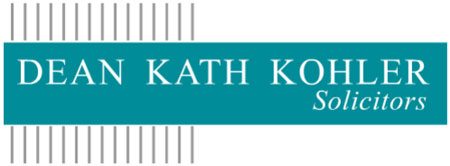
Our Firm
The DKK law team are Toowoomba lawyers who take the time to listen to you and your individual circumstances. We understand that every situation is unique and pride ourselves on ensuring that you receive the best outcome through our professional expertise and experience.
DKK Law advise on a range of legal matters including conveyancing, commercial property, wills & estates, business matters & family law.
Originally established by one of Toowoomba’s first mayors, Bernard Joseph Beirne, over 100 years ago, Dean Kath Kohler has continued to evolve into one of Toowoomba’s most respected law firms.

Services
Accountable. Caring. Reliable. Approachable.
Need a commercially realistic legal solution? Dean Kath Kohler Solicitors (DKK) is a multi-service law firm with the insight and experience to help you achieve your goals.
With a history in Toowoomba and on the Downs that stretches back over a century, there are few firms with a greater understanding of the commercial and legal issues relevant to the region than Dean Kath Kohler. Drawing on the valuable expertise of its professional team, Dean Kath Kohler provides clients with timely, straightforward legal advice that will maximise opportunities and minimise risk.

Contact Us
If you would like to find out more about Dean Kath Kohler legal services and how we can help you, please contact us by phone, email or drop into our office in Toowoomba.
Office: 15-17 Kitchener Street, Toowoomba Q 4350 | PO Box 1050, Toowoomba Q 4350
Phone: (07) 4698 9600
Email: [email protected]
DEAN KATH KOHLER
With a history spanning over 100 years, our firm can assist you with conveyancing, commercial property, wills & estates, business matters and family law. Professional advice & expertise, tailored to you.
OUR ADVANTAGES
- Accountable
- Caring
- Reliable
- Approachable
CONTACT US
15-17 Kitchener Street, Toowoomba Q 4350
PO Box 1050, Toowoomba Q 4350
(07) 4698 9600
[email protected]
